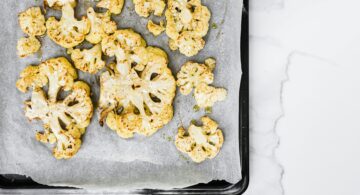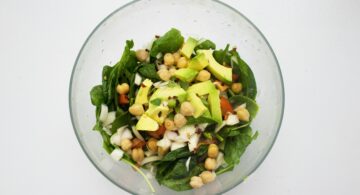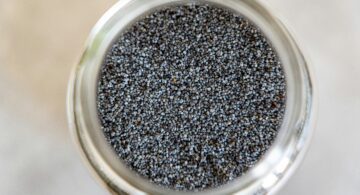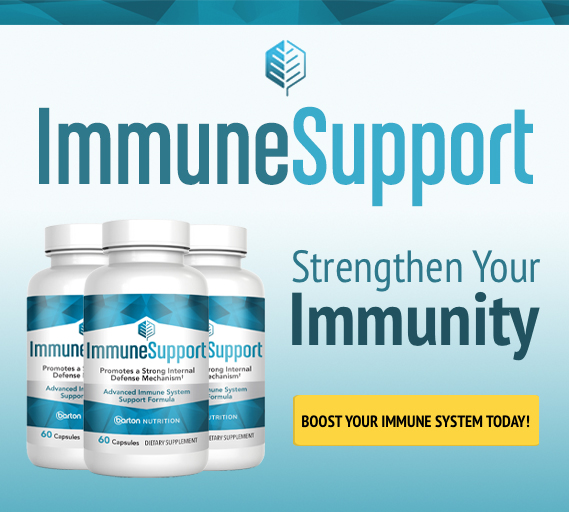Preventing Parkinson’s One Bite at a Time
I’ve seen a particular picture roaming the internet and social media lately. There are different versions, but they all have the same message. It is a picture of a fruit and vegetable stand with a sign that states, “Nature’s Pharmacy,” “The Original Pharmacy,” or “The Farmacy.” You might think that it’s cute or clever, but there is really a stone-cold truth in that lighthearted photograph.
Nutrition provides us with what we need to combat disease in our body. If we are lacking in nutrition, our cells do not function properly. And when cells aren’t able to do their God-given jobs, disease is the result.
Brain Nutrition
Our brain is made up of primarily fat and nerve cells. Those cells are called neurons, otherwise known as nerve cells. These nerve cells are amazing in their biology. They can transmit information from one area of the body to another in less than a millisecond!
Certain neurons in the brain produce chemicals, as well. One of those chemicals is called dopamine. Dopamine is the chemical that reduces muscles contractions. Without sufficient dopamine in the brain, the result is uncontrolled tremors, freezing muscles, and uncontrollable movements. This is also known as Parkinson’s disease (PD).
Nerve cells need certain amino acids, enzymes, vitamins, and minerals in order to do their jobs. Even the production of dopamine is created from a particular combination of these nutrients! Could it be that many cases of Parkinson’s disease are truly caused by lack of nutrition?
One of the most important nutrients for the brain is the amino acid L-Tyrosine. Without it, we cannot produce dopamine in the brain. The above image illustrates how this process works. L-Tyrosine converts to L-dopa, which in turn becomes dopamine. Our body does not make L-Tyrosine on its own. You must either eat foods containing L-Tyrosine or its precursor, L-Phenylalanine.
Many people with Parkinson’s disease, or those with Parkinson’s in their family, supplement with L-Tyrosine to keep up their dopamine production. I do have to caution; however, if you are taking L-dopa or Levadopa, do not take L-Tyrosine because it can inhibit the action of those drugs.
L-Tyrosine can also be consumed in everyday foods! This brings me back to the picture of the “Farmacy.” Great health starts at its source, good food! Some of the top tyrosine containing foods include:
- Turkey
- Eggs
- Cottage Cheese
- Shrimp
- Mustard Greens
The formation of dopamine requires several other nutrients, as well. These become co-factors and co-enzymes in dopamine production. These important nutrients include:
Folic acid
Otherwise known as folate. It is considered one of the B vitamins. Folic acid is found in:
- Lentils
- Most beans
- Spinach
- And collard greens
B6
Another B vitamin. High levels of B6 are found in:
- Tuna
- Chicken
- Turkey
- Potatoes
- Cod
- Sunflower seeds
- And spinach
B3
Often called Niacin, this B vitamin is found in:
- Tuna
- Chicken
- Turkey
- Lamb
- Beef
- Salmon
- Sardines
- And peanuts
Iron
This important mineral is found in:
- Liver
- Beef
- Spinach
- And lentils
Zinc
You can consume your zinc by eating:,
- Beef
- Spinach
- Pumpkin seeds
- Beans
- And nuts
I believe that giving your brain cells the nutrition it needs can keep the production of dopamine running smoothly, therefore preventing Parkinson’s disease.
Peter Piper’s Pick for Parkinson’s
One of the most flabbergasting prevention treatments for Parkinson’s that I’ve come across is smoking! Research has found that those who smoke have a lower incidence of Parkinson’s disease than non-smokers. Nonetheless, I don’t find this to be a valuable excuse to continue smoking – or even to begin for that matter! Smoking causes a plethora of other diseases! But why would something as harmful as smoking prevent Parkinson’s? Scientists have concluded that nicotine in tobacco lowers Parkinson’s risk.
Tobacco is in a family of plants called Solanaceae. Other members of the Solanaceae species include tomatoes and peppers. These foods actually contain low levels of edible nicotine! The Annals of Neurology published a study this past May that included 500 people who were newly diagnosed with Parkinson’s and 650 people who did not have Parkinson’s disease. The study concluded that the more peppers a person ate, the lower their risk of Parkinson’s became! This decrease added up to a whopping 19%!! Pretty great results for a spicy vegetable!!
I must also point out that this protection was most apparent in those who were non-smokers. This study is a huge step towards proving that nutrition provides a powerful role in disease prevention. Who would have guessed that peppers would have neuro-protective properties?
Caffeine’s Parkinson’s Perks
Coffee drinkers, I am happy to announce to you that your cup of joe has benefits in both Parkinson’s treatment and prevention!! As I explained earlier, Parkinson’s is the result of our brain’s neurons not producing adequate levels of dopamine for our body. Caffeine, however, is a dopaminergic. This means it stimulates the release of dopamine.
There have been several studies linking caffeine consumption and lowered risk of acquiring PD. Yet, until last year, there was no clear evidence on its effects on Parkinson’s symptoms. In August 2012, a study was published in Neurology concluding caffeine also benefitted those suffering with Parkinson’s. Participants in the study took either a placebo or the equivalent of 2-4 cups of coffee in caffeine pills a day. Those who took the caffeine pills had on average a 5-point improvement on the Parkinson’s symptoms scale! They also experienced a 3-point improvement in both their speed of movement and how much stiffness they experienced compared to those taking the placebo. (1)
These benefits don’t begin and end with coffee. Tea is a great example of another healthy source of caffeine. Green tea, for example, contains not only caffeine, but polyphenols, as well. It is also believed that polyphenols can be neuro-protective!
Healthy Fat = Healthy Brain
Did you know that ⅔ of your brain is composed of fats! That’s right! But not just any fat. These specialized fatty acids are the building blocks for the not only cell membranes, but the myelin sheaths of your nerve cells! Scientists have reported that those with neuro-degenerative disorders like Parkinson’s disease, display fatty acid membrane loss. Luckily, incorporating the right fats into your diet you can protect your brain cells!
The most abundant fat in the brain is DHA. DHA is known for its abilities to:
- Increase focus and concentration
- Increase IQ
- Prevent and treat depression
- Reduce symptoms of ADD and ADHD
DHA makes up much of the neuron’s myelin sheath and cell membrane. Therefore, getting adequate DHA in our diet is extremely important! Eating fatty fish like tuna, salmon, and sardines are great sources. However, many of these fish can also contain high levels of mercury, a neurotoxin to the brain. I instead would recommend supplementing with a quality, third party tested fish oil instead. Start out with at least 500 mg of DHA per daily dose.
MCTs or Medium Chain Triglycerides, like those found in coconut oil can be beneficial to the brain, as well. A 2004 study published in the journal Neurobiology of Aging found that the MCTs almost immediately improved cognitive function in older adults with memory disorders! This is due to something called ketone bodies, present in medium chain triglycerides. These ketone bodies serve as an alternative source of fuel that boosts blood flow to the brain. Increased blood to the brain decreases the degeneration of neurons. Supplementing with 2-4 tbsp. of coconut oil a day or 1 tbsp. of pure MCT oil is a great daily dose.
Butter for the brain?
Your brain needs cholesterol in order to function. Where does it get that cholesterol? From the food you eat! Butter is also high in oleic acid, which is another important fatty acid in the myelin sheath of neurons. Not just any ol’ butter will suffice. Be sure and buy a quality grass-fed butter. Grass fed cows produce more nutrient dense butter than other cows. The color of grass fed butter is a nice deep yellow.
Not all fats are beneficial for the brain!
There is one particular fat you want to avoid like the plague: trans-fats. Trans-fats are not only a cause of high cholesterol and heart disease, but also brain diseases. Things like french fries, chips, margarine, and anything that is hydrogenated, are trans-fats. These lab-altered fats alter our brain chemistry, creating “brain blocks.” Trans-fats can take the place of DHA in the brain and interfere with the electrical activity of our neurons. This just sets the stage for degeneration of these nerve cells, which leads to neuro-degenerative diseases.
Butter Coffee for Better Brain Function
One of newest health trends is called Butter Coffee. Otherwise known as Bulletproof Coffee, this concept was introduced by health blogger Dave Asprey. He was inspired to create this combination after visiting the mountains of Tibet. The Tibetan people there drank Yak butter tea. A lover of coffee, Dave decided to add high quality butter to his morning joe instead. He boasts butter coffee’s ability to increase energy and promote weight-loss. I, however, am touting it for it Parkinson’s prevention abilities. Bulletproof Coffee contains only 3 ingredients, all of which I have covered as beneficial to preventing and treating Parkinson’s disease.
- 2 cups organic coffee
- 2 tbsp. grass-fed butter
- 2 tbsp. MCT oil or extra virgin coconut oil
Coffee can be highly sprayed with pesticides, so using an organic blend is very important. In order to get the best benefits from the butter, it must be grass-fed. Kerry Gold is a fantastic brand of grass-fed butter and can be purchased at nearly every health food store. MCT oil is around 6 times stronger than coconut oil, but can be more difficult to find. You can purchase it here.
This trifecta of ingredients contains both brain boosting fats and caffeine! I recommend blending the mixture as the oil want to float to the top. When blended, it creates a frothy, cappuccino like effect.
Brain Boosting Salsa
As I mentioned early, both tomatoes and peppers are in the Solanaceae family of plants that are known to lower the risk of PD. My absolute favorite way to consume this combination is in fresh salsa!!
Use fresh tomatoes, shelf stable tomatoes in glass or boxed containers. Canned tomatoes have unfortunately been found to contain high levels of BPA, which is a synthetic estrogen that has been linked to reproductive issues and heart disease. This salsa also contains cilantro, which has mercury-binding properties. This helps to detox that neurotoxic metal from your body and brain. (By the way, it is a possibility that mercury is one main environmental contributor to PD. By lowering dopamine levels, mercury is often held responsible for tremors associated with Parkinson’s.)
This salsa is incredibly easy to make and serves as a great condiment for fish, chicken, or your favorite Mexican dish.
Combine:
- 3 tomatoes, chopped
- 1/2 cup finely diced onion
- 5 serrano chiles, finely chopped
- 1/2 cup chopped fresh cilantro
- 1 teaspoon salt
- 2 teaspoons lime juice
Chill for at least an hour to let the flavors meld together.
Adopt the “Farmacy” lifestyle and let nutrition heal you. These foods can reduce the neuro-degeneration that leads to Parkinson’s.
Not only will good, nutrient rich foods keep you out of the doctor’s office, but it will save you money in medical bills. Parkinson’s, like so many other diseases, can be prevented with the right combination of nature’s best foods. Your daily diet is a simple way to encourage your brain to produce more dopamine.
If you liked this article, then you’ll love:
- Dr. Saunders’ Personal Alzheimer’s Protection Plan
- Dr. Saunders’ Kick The Habit Plan To Quit Smoking
- Candida Diet Is The Cornerstone Of Anti-Aging
(1) http://www.cbsnews.com/8301-504763_162-57484791-10391704/caffeine-from-two-to-four-daily-cups-of-coffee-may-reduce-parkinsons-disease-symptoms/

























